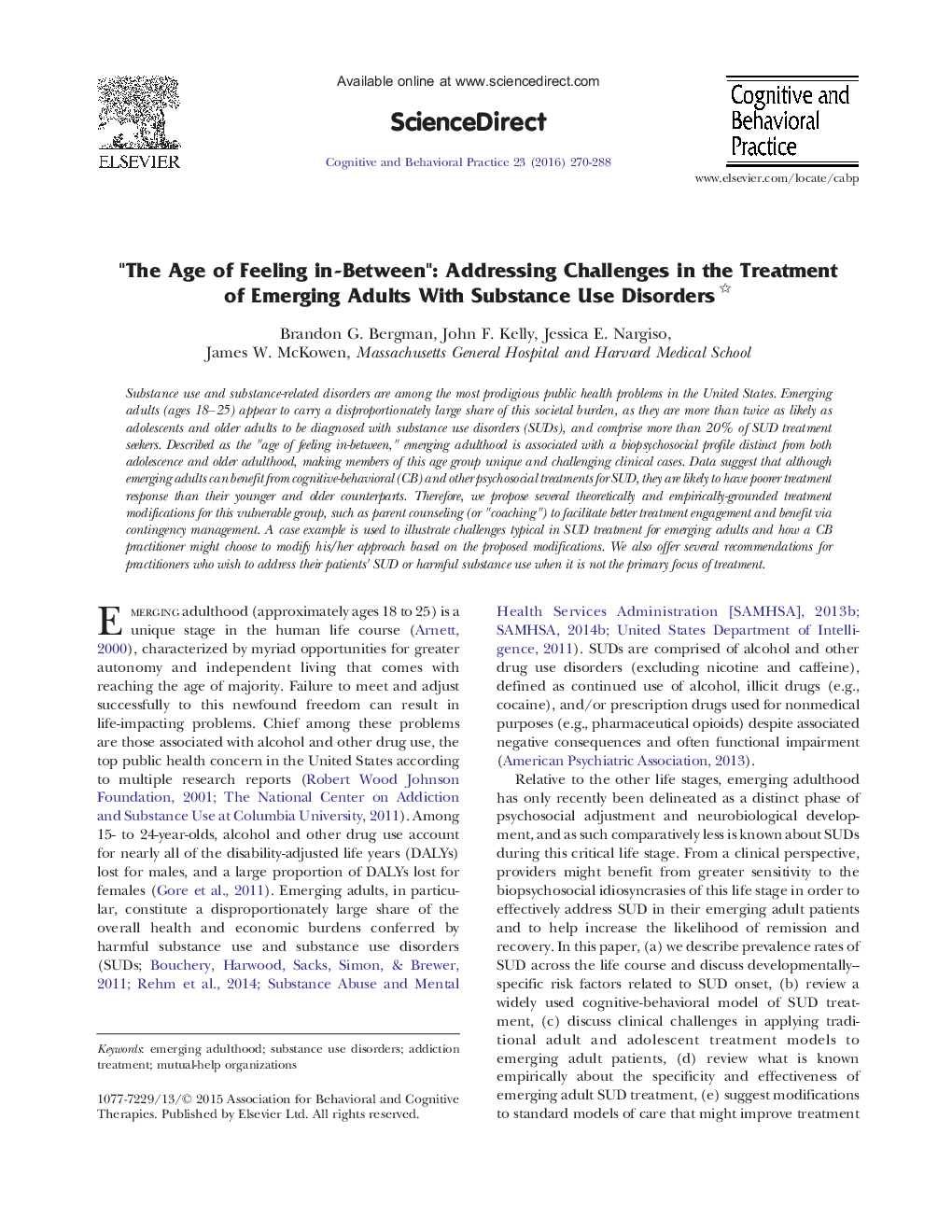| Article ID | Journal | Published Year | Pages | File Type |
|---|---|---|---|---|
| 904218 | Cognitive and Behavioral Practice | 2016 | 19 Pages |
•Emerging adults have higher rates of substance use disorder than other age groups•They are clinically unique and may demonstrate poorer treatment response•We review challenges in using a traditional cognitive-behavioral approach•We propose theoretically and empirically-grounded treatment modifications•We describe how to address substance use if it is not the primary clinical focus
Substance use and substance-related disorders are among the most prodigious public health problems in the United States. Emerging adults (ages 18–25) appear to carry a disproportionately large share of this societal burden, as they are more than twice as likely as adolescents and older adults to be diagnosed with substance use disorders (SUDs), and comprise more than 20% of SUD treatment seekers. Described as the "age of feeling in-between," emerging adulthood is associated with a biopsychosocial profile distinct from both adolescence and older adulthood, making members of this age group unique and challenging clinical cases. Data suggest that although emerging adults can benefit from cognitive-behavioral (CB) and other psychosocial treatments for SUD, they are likely to have poorer treatment response than their younger and older counterparts. Therefore, we propose several theoretically and empirically-grounded treatment modifications for this vulnerable group, such as parent counseling (or "coaching") to facilitate better treatment engagement and benefit via contingency management. A case example is used to illustrate challenges typical in SUD treatment for emerging adults and how a CB practitioner might choose to modify his/her approach based on the proposed modifications. We also offer several recommendations for practitioners who wish to address their patients' SUD or harmful substance use when it is not the primary focus of treatment.
